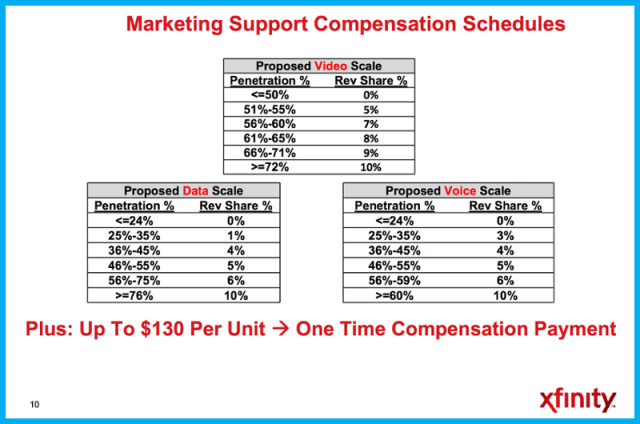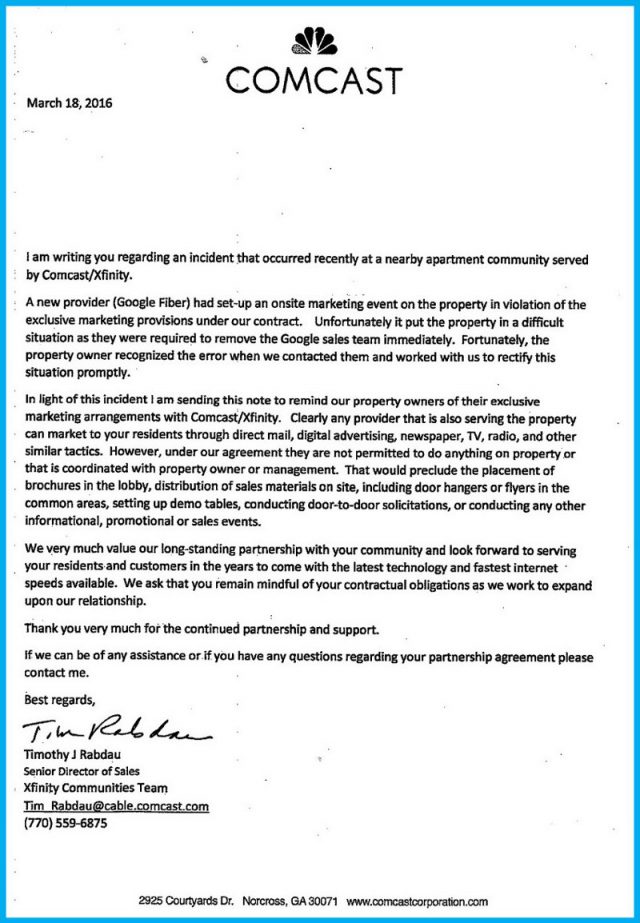 The community of Pinetops, N.C. has finally got 21st century gigabit broadband, but no thanks to a state legislature so beholden to Time Warner Cable, it let the cable giant write its own law to keep potential competitors away.
The community of Pinetops, N.C. has finally got 21st century gigabit broadband, but no thanks to a state legislature so beholden to Time Warner Cable, it let the cable giant write its own law to keep potential competitors away.
The passage of H129 was almost a given after Republicans regained control of both chambers of the state legislature in 2011 for the first time since 1870. The bill made it almost impossible for any of the state’s existing community-owned broadband networks to expand out of their immediate service areas. It also discouraged any other rural towns from even considering starting a public broadband network to solve pervasive broadband problems in their communities.
It was not the finest moment for many of H.129’s supporters, who had to explain to the media and constituents why the state’s largest cable operator needed protection from potential competition and more importantly, why public officials were catering to the corporate giant’s interests over that of the public.
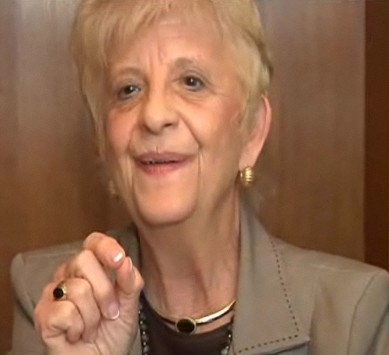
“I wish you’d turn the camera off now because I am going to get up and leave if you don’t,” said Rep. Julia Howard
Rep. Julia Howard (R-Davie, Iredell) found herself losing her cool when WNCN reporters in Raleigh caught up with her and confronted her with the fact her campaign coffers had been filled by the state’s largest telecom companies. She didn’t have an answer for that. Moments later, she appeared ready to flee the interview.
“I wish you’d turn the camera off now because I am going to get up and leave if you don’t,” Howard told the reporter.
Rep. Marilyn Avila was so close to Marc Trathen, then Time Warner Cable’s top-lobbyist in the state, we decided five years ago it would be more accurate to list Time Warner Cable as her sole constituent. Avila’s name appeared on the bill, but it was readily apparent Time Warner Cable drafted most of its provisions. The nearest city in Avila’s own district wanted no part of H129, and neither did many of her constituents.
The bill managed to pass the legislature and after becoming law effectively jammed up community broadband expansion in many parts of the state.
It would take the Federal Communications Commission to pre-empt the legislation on the grounds it was nakedly anti-competitive and prevented broadband improvements in communities major telecom companies have ignored for years.
As a result of the FCC’s actions, the community of Pinetops now has access to gigabit broadband, five years late, thanks in part to Rep. Avila who got a $290 dinner for her efforts and was honored as a guest speaker at a cable industry function in recognition of her service… to Time Warner Cable.
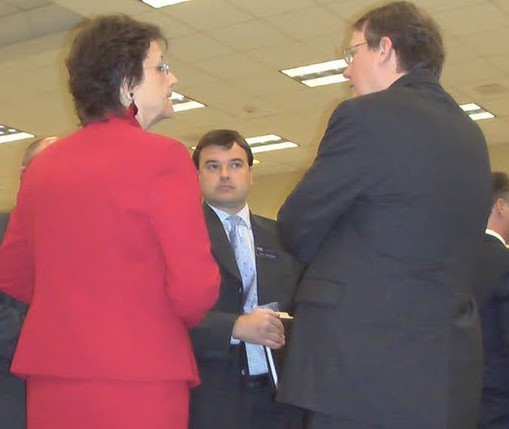
Rep. Avila with Marc Trathen, Time Warner Cable’s top lobbyist (right) Photo by: Bob Sepe of Action Audits
Greenlight, Wilson’s community-owned fiber to the home provider, switched on service in the community this spring to any of the 600 Pinetops homes that wanted it, and many did.
“We just love it!” said Brenda Harrell, the former acting town manager.
In fact, Greenlight is now delivering the best broadband in Edgecombe County, and deploying fiber to the home service was hardly a stretch for Greenlight, which was already installing fiber optics to manage an automated meter infrastructure project. The only thing keeping better broadband out of the hands of Pinetops residents was a law written by an industry that loathes competition and will stop it at all costs. Time Warner Cable didn’t bother to offer service in the community even after its bill became law and residents endured years of unreliable DSL or dialup access instead. Talk about a win-lose scenario. Time Warner Cable got to keep its comfortable cable monopoly while many families had to drive their children to businesses miles away just to borrow their Wi-Fi signal to finish homework assignments.
Faster broadband is likely to be transformative for the quiet rural community. Current town manager Lorenzo Carmon sees more than nearby fields of sweet potatoes and soybeans. With gigabit fiber and cheap local housing, Pinetops could become a bedroom community for upper income professionals now living in Greenville, a university town heavily populated by doctors, students, and high-tech knowledge economy workers. If and when they arrive, they’ll find a tech-ready community, right down to the local Piggly-Wiggly supermarket, which now has fiber fast internet service too.
 Pinetops offers proof of the obscenity of bought-and-paid-for-politicians supporting corporate protectionism that harms people, harms education, harms jobs, and leaves rural communities with no clear path to the digital economy of the 21st century. Legislation like H129, which continues to be enforced in more than a few U.S. states, needs to be pre-empted nationwide or even better repealed by state legislators.
Pinetops offers proof of the obscenity of bought-and-paid-for-politicians supporting corporate protectionism that harms people, harms education, harms jobs, and leaves rural communities with no clear path to the digital economy of the 21st century. Legislation like H129, which continues to be enforced in more than a few U.S. states, needs to be pre-empted nationwide or even better repealed by state legislators.
But North Carolina’s legislature still isn’t getting the message. They are outraged the FCC outsmarted Time Warner Cable and them, and are now wasting time and resources to have the FCC’s pre-emption overturned in court, evidently so that rural North Carolina can continue to tough it out with DSL indefinitely. That’s political malpractice and North Carolina voters need to show the door to any elected representative that cares more about the interests of a giant cable company than what is good for you and your community. Reps. Avila and Howard don’t have to live with 3Mbps DSL, so why should you?
“If the private sector is not providing the services, the government has to step in,” said Carmon. “The internet is just like electricity. You can’t live without it.”
We couldn’t agree more.


 Subscribe
Subscribe Comcast
Comcast  “Got the email this week we get to be part of this data cap ‘trial,'” shared another customer. “How lucky are we? And what do we get for being part of this trial? Absolutely nothing! And can we opt out of this trial? Heck no!”
“Got the email this week we get to be part of this data cap ‘trial,'” shared another customer. “How lucky are we? And what do we get for being part of this trial? Absolutely nothing! And can we opt out of this trial? Heck no!”
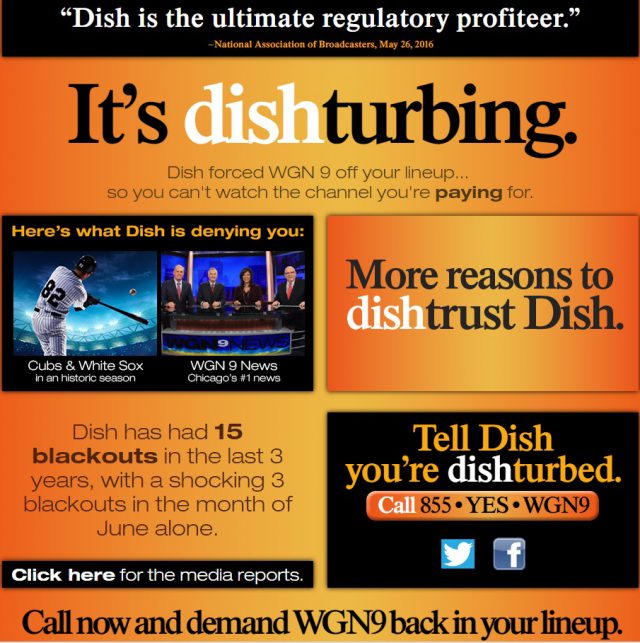


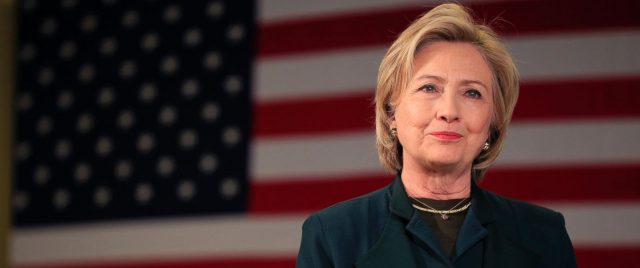 The internet.
The internet. Believe it or not, there are organizations out there that track just how many of these pledges are actually kept during each administration, and surprisingly the track record is better than you might think. Politifact’s Obameter shows the Obama Administration
Believe it or not, there are organizations out there that track just how many of these pledges are actually kept during each administration, and surprisingly the track record is better than you might think. Politifact’s Obameter shows the Obama Administration 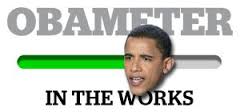


 Is your cable television service included in your rent or condo “services” fee? Have you ever called another provider and told service was not available at your address even through others outside of your condo neighborhood or apartment complex can sign up for service today? Chances are your landlord or property management company is receiving a kickback to keep competition off the property, while you may be stuck paying for substandard services you neither want or need. Worst of all, chances are it’s all legal and everyone is getting a piece of the action… except you.
Is your cable television service included in your rent or condo “services” fee? Have you ever called another provider and told service was not available at your address even through others outside of your condo neighborhood or apartment complex can sign up for service today? Chances are your landlord or property management company is receiving a kickback to keep competition off the property, while you may be stuck paying for substandard services you neither want or need. Worst of all, chances are it’s all legal and everyone is getting a piece of the action… except you.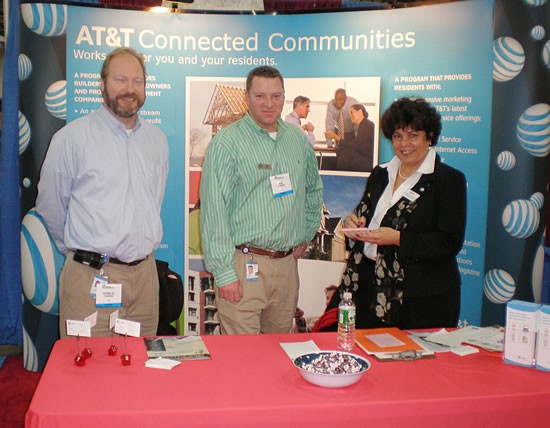 With the FCC’s 2007 declaration that exclusive contracts between cable companies and property owners were “null and void,” the power of the cable industry to negotiate on their terms was markedly diminished. Although many property owners applauded their new-found freedom to tell the local cable company to take a hike if they did not offer better service to their tenants, many others saw dollar signs in their eyes. With leverage now in the hands of the property owner, if the local cable company wanted to stay, in many cases it had to pay. Only the most brazen property owners kicked uncooperative cable companies off their properties, putting tenants at a serious inconvenience. Instead, many found life more peaceful and lucrative to stick with the existing cable company, signing a new contract for “bulk billing” tenants. On the surface, it seemed like a good deal. Property owners advertised that cable TV was included in the rent (and they paid a deeply discounted price per tenant) and the cable operator had a guaranteed number of customers, whether they wanted the service or not.
With the FCC’s 2007 declaration that exclusive contracts between cable companies and property owners were “null and void,” the power of the cable industry to negotiate on their terms was markedly diminished. Although many property owners applauded their new-found freedom to tell the local cable company to take a hike if they did not offer better service to their tenants, many others saw dollar signs in their eyes. With leverage now in the hands of the property owner, if the local cable company wanted to stay, in many cases it had to pay. Only the most brazen property owners kicked uncooperative cable companies off their properties, putting tenants at a serious inconvenience. Instead, many found life more peaceful and lucrative to stick with the existing cable company, signing a new contract for “bulk billing” tenants. On the surface, it seemed like a good deal. Property owners advertised that cable TV was included in the rent (and they paid a deeply discounted price per tenant) and the cable operator had a guaranteed number of customers, whether they wanted the service or not.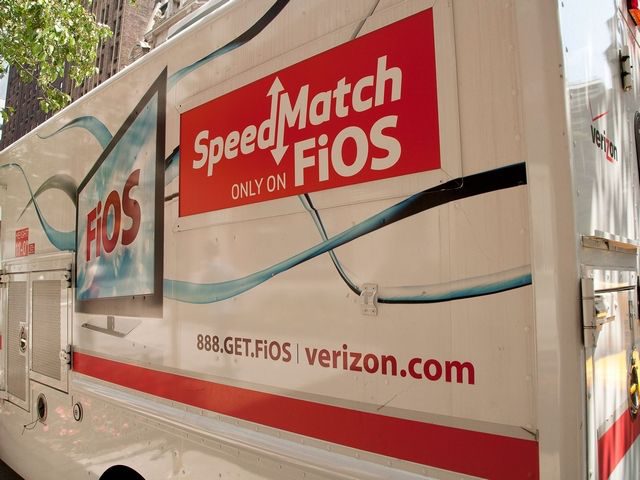 If Google Fiber, AT&T U-verse or Verizon FiOS sought to offer service on one of these properties, they would have to overcome the investment insanity of wiring each building with its own infrastructure, including duplicate cables, in separate conduits and spaces not already designated for the exclusive use of the cable company. Verizon in New York City has faced numerous obstacles wiring some buildings, including gaining access to the building itself. Intransigent on site employees, bureaucratic and unresponsive property management companies, and developers have all made life difficult for Verizon’s fiber upgrade.
If Google Fiber, AT&T U-verse or Verizon FiOS sought to offer service on one of these properties, they would have to overcome the investment insanity of wiring each building with its own infrastructure, including duplicate cables, in separate conduits and spaces not already designated for the exclusive use of the cable company. Verizon in New York City has faced numerous obstacles wiring some buildings, including gaining access to the building itself. Intransigent on site employees, bureaucratic and unresponsive property management companies, and developers have all made life difficult for Verizon’s fiber upgrade.